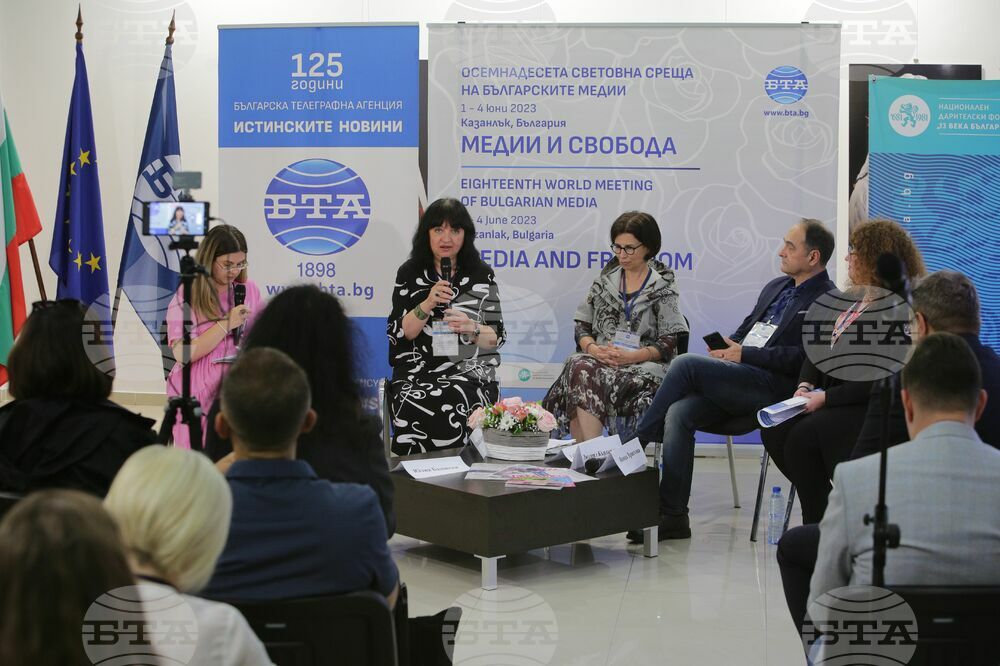World Meeting of Bulgarian Media
![Third Panel of 18th World Meeting of Bulgarian Media: Holidays and Media]()
![Third Panel of 18th World Meeting of Bulgarian Media: Holidays and Media]() A snapshot from the third panel of the World Meeting of Bulgarian Media on June 3, 2023 (BTA Photo)
A snapshot from the third panel of the World Meeting of Bulgarian Media on June 3, 2023 (BTA Photo)
site.btaUPDATED Third Panel of 18th World Meeting of Bulgarian Media: Holidays and Media


Gabriela Hadzhikostova who publishes the Bulgarski Vesti paper in Hungary said that being a Bulgarian in Hungary is a festive experience. She said that Bulgarians there strive for improvement and development.
/NZ/
Additional
news.modal.image.header
news.modal.image.text
news.modal.download.header
news.modal.download.text
news.modal.header
news.modal.text
























